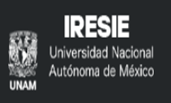The guarantee of the right to permanence to IF BAIANO students
contributions from the Student Assistance and Social Inclusion Program between the years 2011 and 2019
DOI:
https://doi.org/10.35699/2238-037X.2023.44606Keywords:
Student assistance, Permanence, Professional education, Public policyAbstract
The Student Assistance and Social Inclusion Program is a State policy formulated by the Bahia Federal Institute of Education, Science and Technology and included in the National Student Assistance Program to guarantee the right to permanence of low-income students in the process of schooling. The research presents the following problem: in what ways is the Student Assistance and Social Inclusion Program effective in guaranteeing the right to stay for students at the Federal Institute of Education, Science and Technology in Bahia? How have the aids that provide housing, food, transportation, school supplies and day care contributed to permanence? In order to achieve the general objective of analyzing the Student Assistance Policy at the Federal Institute of Education, Science and Technology Baiano (2011-2019), in particular the Student Assistance and Social Inclusion Program, to guarantee the right to permanence of the students, the case study was chosen as an investigation strategy. Among the methodological aspects, it is interesting to highlight the interdisciplinary nature of this study, in which a bibliographical and documentary survey was carried out. The analysis of permanence from the Student Assistance and Social Inclusion Program was developed through the approach of historical-dialectical materialism and the research also involved the analysis of official documents of the Federal Institute of Education, Science and Technology of Bahia with the following strategies data collection: participant observation, analysis of archived records and interviews with a sample of students assisted, with students from the student movement and civil servants involved with the Student Assistance Policy of the Federal Institute of Education , Science and Technology Bahia. This scientific research is committed to the transformation of society, more specifically to the social inclusion of students in a situation of socioeconomic vulnerability at the Federal Institute of Education, Science and Technology in Bahia who rely on student assistance to remain in the institution. The research results show that the Student Assistance and Social Inclusion Program has neoliberal and fragile characteristics, that it is fragmented and that it suffers from governmental and budgetary discontinuities. Due to the limitations imposed by the neoliberal logic that mark the national and institutional management of the policy, it is observed that it partially fulfills its social function. It highlights the need and importance of expanding the permanence policy, moving forward in the discussion about “bolsification” and the naturalization of the idea that providing the minimum is enough to guarantee permanence, especially considering the pandemic phenomenon, with all its effects for the most vulnerable populations, which represent the current student profile.
Downloads
Downloads
Published
How to Cite
Issue
Section
License
Copyright (c) 2023 Trabalho & Educação

This work is licensed under a Creative Commons Attribution 4.0 International License.
Os autores têm autorização para assumir contratos adicionais separadamente, para distribuição não-exclusiva da versão do trabalho publicada nesta revista (ex.: publicar em repositório institucional ou como capítulo de livro), com reconhecimento de autoria e publicação inicial nesta revista.












